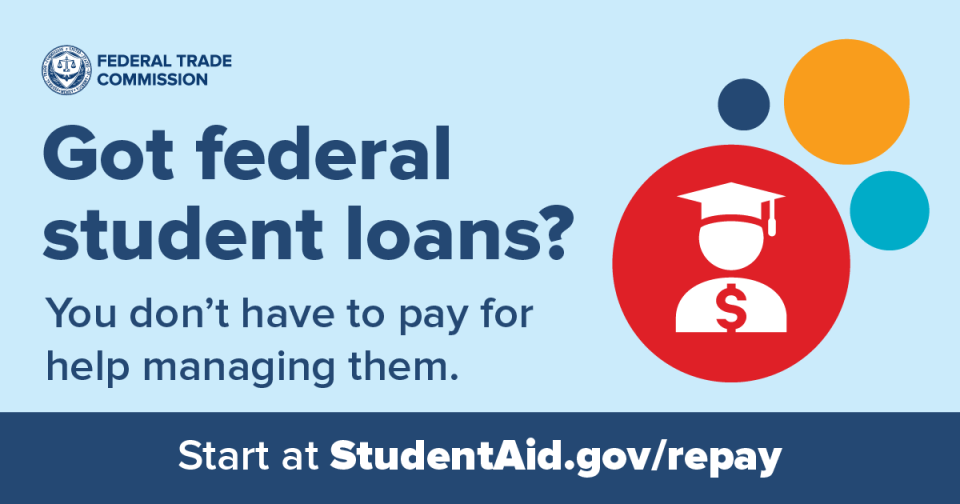Paying off student loans can feel like a big undertaking, especially since it’ll take most people years to see a zero balance. When debt relief companies call promising quick loan forgiveness, you may be tempted to hear them out — but don’t. These scammers claim they’ll lighten your load (for a fee) — but their schemes often leave you deeper in the hole.
That’s what happened to people who paid for debt relief services with the operators of BCO Consulting Services, SLA Consulting Services, and SL Finance — and why the FTC announced today that it went to court to stop these schemes. In two new cases, the FTC says these student loan debt relief scammers impersonated the Department of Education — and one used fake COVID-19 relief programs — to steal a combined total of more than $12 million dollars. The FTC says these companies used the federal student loan pause — when borrowers generally weren’t in contact with their loan servicers — to get people to sign up for bogus debt relief repayment plans. What’s worse, the FTC says borrowers paid more money to the defendants than they would’ve paid to their actual loan servicers — particularly during the pause when payments weren’t required at all.
The FTC says the defendants lied to borrowers, saying they’d take over servicing their loans (but they didn’t), charged illegal upfront fees, and said the fees would be applied to reduce the loan balance — but that never happened. When borrowers realized they’d been tricked, the FTC says the defendants ignored refund requests or threatened things like loan default when borrowers asked for their money back.
Here’s the truth: You don’t have to pay for help managing your student loans. If you have federal student loans, start at StudentAid.gov/repay. If your loans are private, go directly to your loan servicer. It’s their job to help you — for free. And if you spot a scam, we want to know about it: ReportFraud.ftc.gov.


Good call. You also need to let people know they don't have to pay for help with Internal Revenue issues--if and only if--they respond promptly to the FIRST letter they receive!
If an issue cannot be resolved at the CSR level the IRS Tax Advocate is FREE! The taxpayer only needs to communicate and ask for assistance. No need to pay some fly-by-night outfit to do what the IRS will help the citizen do for her/himself.
Get the truth out there because these operations paint the IRS like the boogeyman and play on the public's ignorance and fear. I might add that is also the bread and butter of the insurance industry.
Thanks for the opportunity to leave feedback. It is my sincere hope somebody sees this comment before it disappears. God Bless America.
I was disenrolled last January but I’m seeing my student loan paid out $70,000.00. And now I have to frantically search for anything else I can borrow so I can pay my law school tuition payment within a month